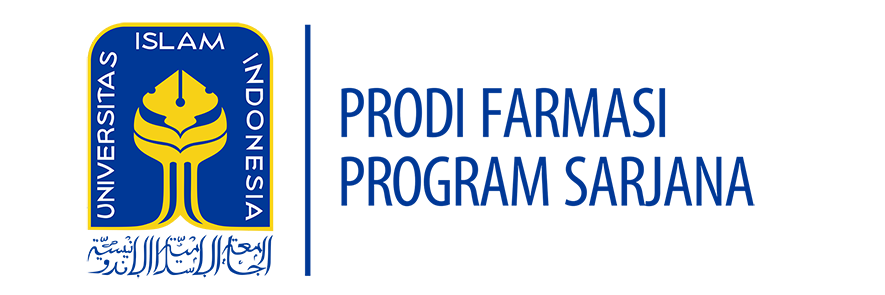| Module Name |
Drug Therapeutic and Side-Effects Monitoring |
| Module Level, If Applicable |
4th Year |
| Code, If Applicable |
SFA-987 |
| Semester (S) In Which The Module Is Taught |
Seventh Semester |
| Person Responsible For The Module |
Dr. Apt. Vitarani Dwi Ananda Ningrum, M.Si |
| Lecturer(S) |
Dr. Apt. Vitarani Dwi Ananda Ningrum, M.Si |
| Language |
English-Indonesian |
| Relation To Curriculum |
Elective Courses |
| Types Of Teaching And Learning |
Class Size |
Attendance Time (Hours Per Week Per Semester) |
Forms Of Active Participation |
Workload |
| Teaching |
50 |
2 |
Lectures |
Lectures: 2 (Hours) X 14 (Meeting) |
28 |
| Preparation And Follow Up: 4 (Hours) X 14 (Self-Learning) |
56 |
| Group Discussion |
50 |
1 |
Case-Studies And Report Writing |
Practical: 1 (Hours) X 12 (Meeting) |
12 |
| Preparation And Follow Up: 2 (Hours) X 12 (Self-Preparation) |
24 |
| Total Workload |
120 Hours |
| ECTS |
4.29 ECTS |
| Credit Points |
3 CU |
| Requirements According To Examination Regulations |
Minimum Attendance At Lectures Is 75% (According To Uii Regulation). Final Score Is Evaluated Based On Assignment And Reports (40%), Mid Semester Exam (30%), And End Semester Exam (30%). |
| Recommended Prerequisites |
Therapeutic Concepts |
| Related Course |
– |
| Module Objectives/Intended Learning |
On Successful Completion Of The Course Students will be able to
- understand and apply the attitude of responsibility,dedication, and disciplinary in carrying out lectures and completing well-given lecture assignments.
- critically appraisal against various EBM drug side effects events correctly
- distinguish between the responsibilities of the pharmaceutical industry and health workers in health facilities related to the safety of drug use
- explain the definitions, objectives, and forms and parameters oftreatment therapy as part of the pharmacist’s responsibility in the field of services to support safe and effective treatment
- distinguish between pharmacovigilance, drug side effects with adverse drug reaction and adverse event.
- associate therapeutic monitoring and drug side effects in cases of real patients with nervous system disorders, gastrointestinal and respiratory diseases, diseases of the hormone-endocrine system, diseases/disorders of the renal-cardiovascular system, and infectious-malignant diseases.
|
| Content |
- Pharmaceutical care
- Pharmacovigilance
- Treatment therapy monitoring
- Drug Side Effects
- Real patient cases
|
| Study And Examination Requirements And Forms Of Examination |
Mid-Term, Final Term, Group Paper |
| Media Employed |
Slides (Power Points), And Video |
| Reading Lists |
- Robert J. Cipolle, Linda M. Strand, Peter C. Morley , Pharmaceutical Care Practice: The Patient-Centered Approach to Medication Management Services, 3e, 2012, McGraw-Hill Medical
- https://www.ncbi.nlm.nih.gov/pmc/articles/PMC3853665/
- https://www.ncbi.nlm.nih.gov/pmc/articles/PMC3853674/
- Evidence Based Medicine – New Approaches and Challenges, https://www.ncbi.nlm.nih.gov/pmc/articles/PMC3789163/
- Various journal sites (www.nejm.org ; www.bmj.com journal ; www.cochrane.org; https://ebm.bmj.com/
|
